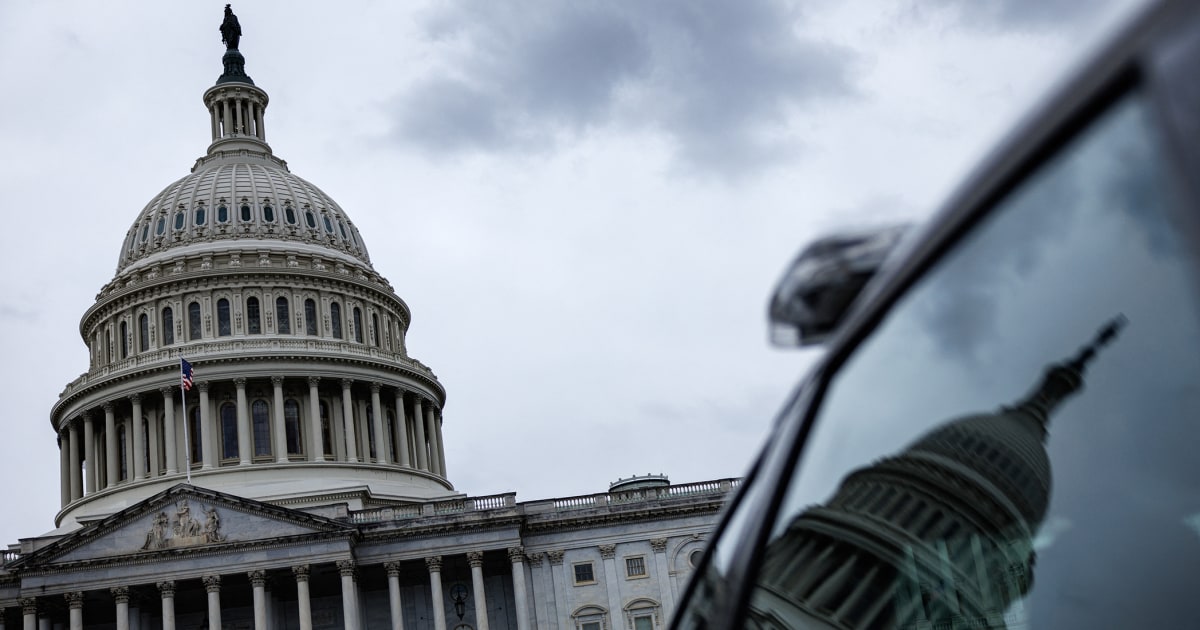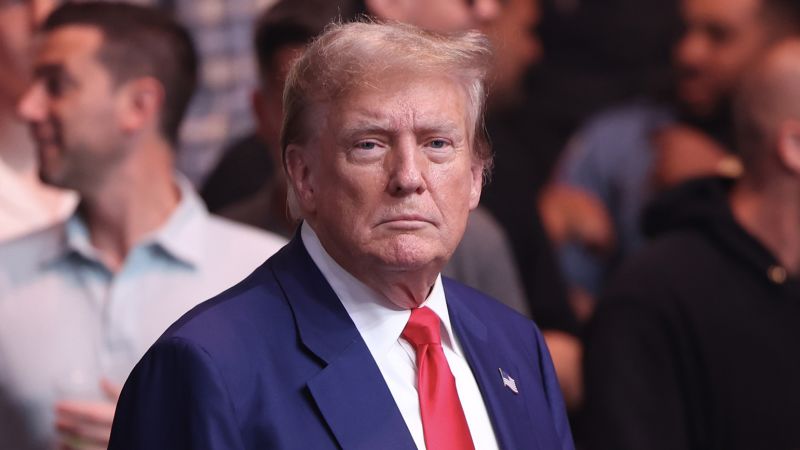Opinion editor’s note: Strib Voices publishes letters from readers online and in print each day. To contribute, click here . ••• Many Minnesotans cited inflation as their highest priority this election.
Many of us parents are struggling to pay for rising child care, housing and food prices. And children can sense their parents’ stress in ways not good for their mental or physical well-being. The best thing Congress can do for children right now is expand the Child Tax Credit (CTC).

In 2021, Congress expanded the CTC, and we saw the largest drop in child poverty ever recorded. Our existing CTC is structured a bit like a reverse sliding scale — middle-income and wealthy families get a handout, while low-income families get less. Wouldn’t it make more sense to focus our efforts on giving struggling families the resources to get out of poverty? Studies reveal when families with low income receive refundable tax credits like the CTC and the Earned Income Tax Credit, babies are born at healthier weights, their reading and math scores improve, and children earn higher wages as adults.
When our children are well fed and well taken care of, our community benefits with returns that last well beyond one presidency. Another tax cut for the rich is not what Minnesotans want. Expand the CTC instead.
Katy Czaia, St. Louis Park Protect this sacred space As someone who spent time in the Boundary Waters Canoe Area Wilderness as a child, canoeing with my family to visit petroglyphs, and later returned in high school for the challenge of winter camping, I know firsthand how addictive the freedom of fresh air, clean water and full immersion in nature can be. That’s why, every summer, I’ve made it a point to return, year after year, to continue experiencing all that the Boundary Waters offers — whether it’s the serenity of nature, the simple joy of escaping for a weekend or the thrill of paddling beside the state bird.
It’s difficult for me to understand why anyone would want to put a price tag on such an irreplaceable and sacred place. In a recent article by Chloe Johnson about mining in the BWCA ( “Trump win boosts chances for proposed mines,” Nov. 8), I couldn’t help but feel a deep sense of vicarious empathy.
As a finance student with a minor in sustainability, I find myself both frustrated and angered by the actions of policymakers trying to reduce protections for this precious land. That’s why I’m calling on the Star Tribune Editorial Board and members of the public to support efforts to safeguard the Boundary Waters. In a time of growing uncertainty, we must come together as a community to protect this iconic watershed, ensuring that future generations will be able to experience its ageless beauty.
[Opinion editor’s note: For further reading, see the Star Tribune Editorial Board’s 2019 project “Not this mine. Not this location.” ] Morgan Ulland, Minneapolis No need to look to Uruguay I’m glad to read that Uruguayans are required to vote and take pleasure in doing so ( “Where an election happens in an atmosphere of collective pride,” Strib Voices, Nov.
14). However, the same festive atmosphere around voting takes place in some pockets of America. In the Kingfield neighborhood of Minneapolis, almost a thousand signs were posted early this year on utility poles and in yards giving the dates of this year’s three elections and where to vote.
This longstanding neighborhood association effort culminates with volunteers under tents at our King Park polling site serving coffee, cocoa and business-donated and homemade sweet treats to their voting neighbors, a much-appreciated thank-you during this year’s rainy Election Day. It’s a joyful gathering that brings neighbors together and relies on more than 100 volunteers. The result? A turnout of 86.
4% for one Kingfield precinct and 91.2% for the other, both much higher than the unofficial statewide average of 76% and the Minneapolis turnout of 78%. This stellar record could be duplicated across the city if the City Hall restored adequate funding to resource-starved neighborhood associations.
Steve Brandt, Minneapolis ••• A reader takes exception to comparing Uruguay’s sunny election climate to our very dark one, relying on a premise that U.S. voting requirements are not strict enough to assure such confidence ( “Maybe the U.
S. should take even more inspiration from Uruguay,” Readers Write, Nov. 15).
By omitting key information, his argument fails two ways: The U.S. recently and exhaustively proved strict election integrity twice.
The George W. Bush DOJ launched a campaign where U.S.
attorneys were told to find voter fraud following an election: They found almost none. The stakes were high for those investigators in 2007 due to GOP political pressure: Several U.S.
attorneys were hauled before Congress and some were fired — this is well documented. Any honest look at the 63 lawsuits about fraud following Trump’s 2020 loss finds, again, almost zero fraud. Many of the few proven cases were Trump voters.
After whining loud and long while his own DOJ was in charge, Trump forced the most scrutinized election in U.S. — and maybe human — history.
So there is no need for stricter voting rules, although most GOP-led states made more of them anyway. Additionally, all citizens in Uruguay are required to vote so their registration is tied directly to their citizenship documentation, and 90% of the country’s population live in urban areas meaning easier access to polling places (Uruguay has 1% of the population and 2% of the area of the U.S.
). Their presidential elections are close too, like the U.S.
They can be civil and excited to vote because no vicious candidate is attacking the opposition and the press while claiming they are once again stealing an election. Lucky them. David Paulson, Minnetonka All of Minnesota? Yeah, right.
As your paper has changed its name in an effort to engage the entire state of Minnesota, I find it amazing that your paper is doing that in lip service only. How many counties in Minnesota voted for Kamala Harris for president? If you aren’t sure, only nine out of 87! But you never even mention that 78 counties wanted nothing to do with her. In the last six months, your paper has run daily hit pieces against President-elect Donald Trump on the front page and zero stories pointing out the problems with Harris, Joe Biden and Tim Walz, their own lies, hidden facts, etc.
Where is the story about Harris paying huge amounts of money for celebrity endorsements? Her spending millions of dollars on private flights in the last couple months alone, which are far worse for the climate than domestic flights, yet campaigning for climate change? Not a word from your paper. Yet you write about people who contribute to Republicans in an attempt to shame them. What happened to your paper’s journalistic integrity? Nationwide, confidence in journalism is at an all-time low, generally lower than 40% in every poll.
And your editors can’t see past their bias and hatred that they are a big part of the problem! You don’t represent Minnesota, only a small portion of it. If you really wanted to be the “Minnesota” Star Tribune, then you would have many more conservative writers and stories in your paper, at least equal to the liberal stories you post. Minnesota is not just the Twin Cities metro and Duluth and other large cities.
And until the Democratic Party starts to realize that, they will continue to face disappointing elections. The majority of Americans rejected your paper’s slant in this election. Aaron Thun, Silver Bay, Minn.
••• I read with dismay front-page headlines such as these: “Trump roils health care future” (Nov. 11). The content is troubling enough, but here’s what is also troubling: Why does the Minnesota Star Tribune only now consider this kind of disturbing information to be front-page news? It is not new information, yet was never apparently considered front-page material before the election.
Dereliction of duty on the part of the Minnesota Star Tribune, it seems to me. Jean Greenwood, Minneapolis.
Politics
Readers Write: World Children’s Day, Boundary Waters, Uruguay, election coverage
Do parents a solid and expand the Child Tax Credit














